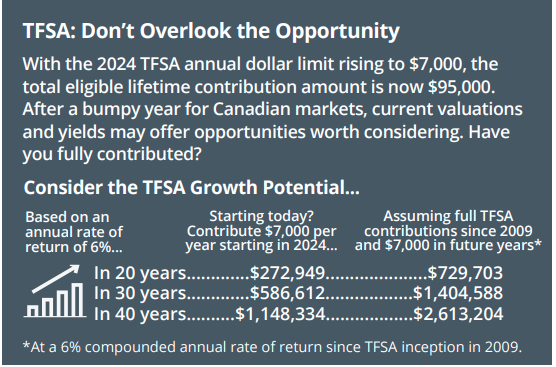The Canada Pension Plan (CPP) has been in the spotlight as the Alberta government proposes creating its own retirement plan. For the answers to some questions about Alberta’s potential divorce from the CPP, see: https://www.cbc.ca/news/business/cpp-app-pension- questions-1.7011117. Most of us contribute to the CPP through our employment income, with the expectation that we will receive future CPP benefits, a monthly, taxable payment that will supplement retirement income. Here are four things you may not know.
1. Over recent years, we have been contributing more. In 2019, CPP reforms were put in place to address the decline in workplace pension plans and increase future CPP benefits. The first phase began in 2019 and ended in 2023, gradually increasing the contribution rate by one percentage point on earnings between $3,500 and the maximum pensionable earnings (MPE) limit.
2. In 2024, higher-income earners will pay even more. The second phase of reforms begins January 1, 2024. Employees and employers will contribute an additional four percent on earnings between the MPE and a new ceiling. In 2024, the MPE is $68,500 and the new ceiling will be $73,200 in 2024 and $78,000 in 2025.
3. Future benefits will increase, but it will take time. Under the old rules, those retiring at age 65 in 2023 could receive a maximum annual CPP benefit of $15,460. With the new rules, this increases to $23,489 or by over 50 percent, in 2023 dollars. This also doesn’t account for the 0.7 percent per month enhancement for those who wait to start benefits after age 65, which would further increase the benefit. Very few retirees wait, despite studies showing that deferring to age 70 may be a wise decision if you live to average life expectancy. However, it will take time before the full impact is realized since benefits are generally based on an average of the best 40 years of earnings. 4. CPP survivor benefits are often misunderstood. Many may not realize that CPP survivor benefits may be minimal or non-existent, which can leave a retirement income/cash flow shortfall for a surviving spouse. Consider a situation in which both spouses collect maximum CPP and OAS benefits, collectively providing over $48,000 in annual retirement, based on monthly CPP of $1,307.57 (2023) and OAS of $707.68 (Q4 2023). If one spouse passes away, annual benefits of $24,000 will be lost. This is because the most that can be paid to a survivor eligible for both CPP benefits is the maximum of the two. There is no additional OAS survivor benefit. The CPP provides a one-time “death benefit” payment of $2,500; however, this is hardly sufficient to complement the potential lost income. 1. CPP outcomes mirror QPP: https://www.rrq.gouv.qc.ca/en/programmes/regime_rentes/Pages/regime-supplementaire.aspx; 2. The 2025 figures are based on the current 2024 MPE


